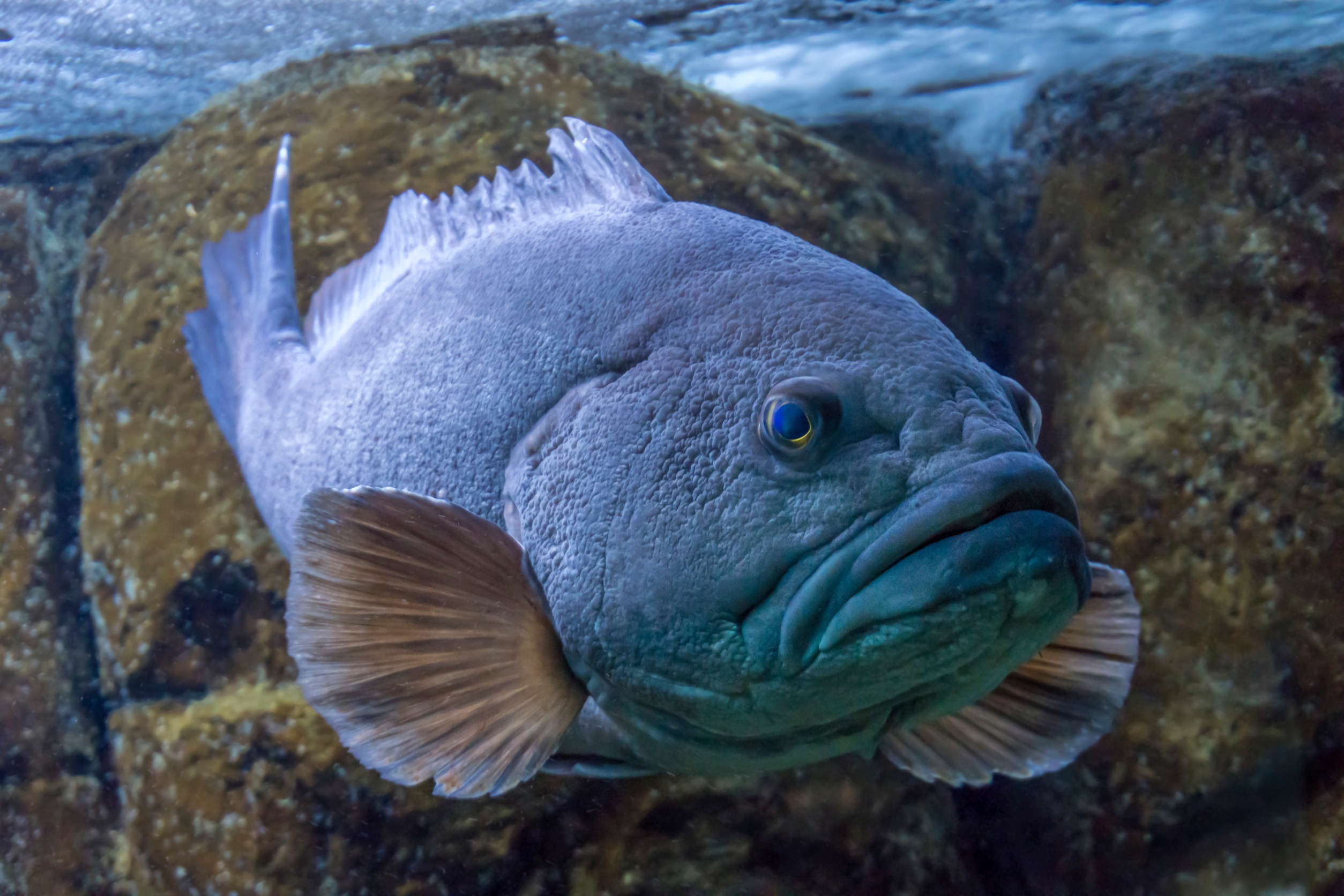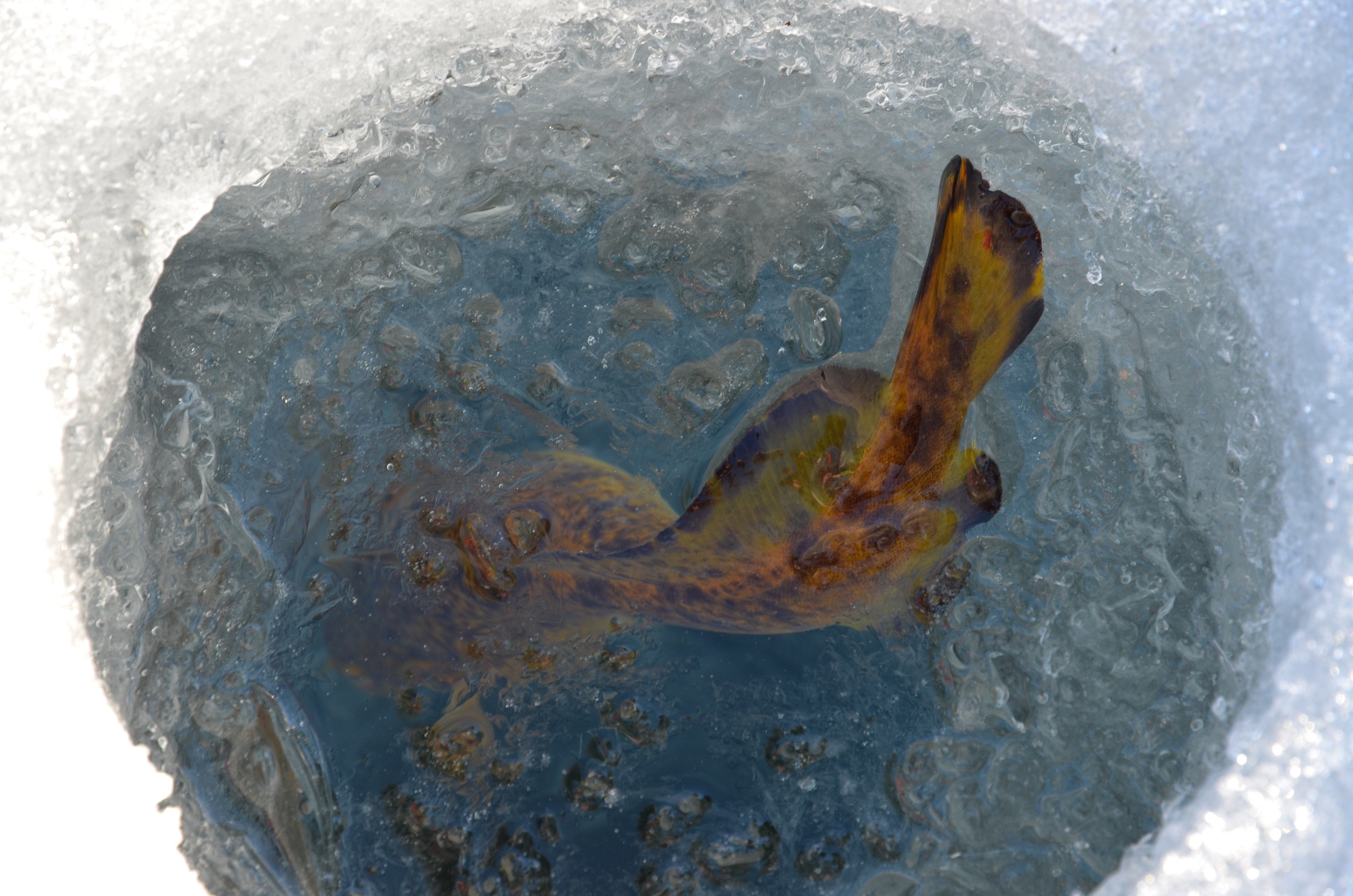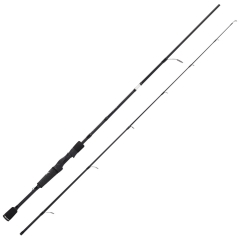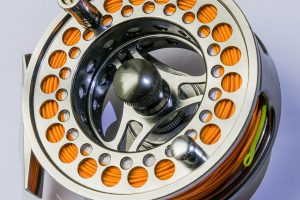Grouper does sleep, and they need rest like us humans as well. However, the fish does not sleep how you expect it to since fish in the water sleep differently. Groupers generally sleep at night because they believe they are safer from predators. Group naps have been observed among various grouper species, including the Nassau grouper, often in coral reef crevices or behind ledges. They wedge themselves into positions with the assistance of their robust tails, which saves them energy by removing the need to swim repeatedly. However, groupers’ precise sleeping habits may vary based on their surroundings, activity, and stage of life. Certain animals may have evolved to sleep during the day because they hunt at night or because their habitat offers better protection during the day.

How do grouper sleep?
Now we know that the grouper fish does sleep but does not sleep like humans. Fish do not have eyelids and their eyes are always open, and they do not close their eyes when they sleep. Instead, they enter a state of rest where their breathing slows down and their metabolism decreases. During this time, they are less responsive to external stimuli and may be found resting on the bottom of the ocean or tucked away in a crevice or other sheltered spot. The amount of time that grouper fish spend sleeping varies depending on the species and environmental conditions of the area.
You might not notice that the fish is sleeping if you are inexperienced. The only way to know that the fish is asleep is when it is still and not moving. Regardless of how the fish sleeps, all the fish need to sleep and rest.
How do other fish sleep?
Like groupers, all other fish also sleep, even though they do not sleep like mammals. When other fish do sleep, it always likes to stay in a safe area, and they will not need to fight off predators. Although, even when asleep, the fish is alert to their environment.
The main difference between mammals and fish is that they do not exhibit rapid eye movements (REM) like humans and other animals, and they do not close their eyes because they do not have eyelids. But not all fish are like this, as sharks constantly move around, even during their rest period, to ventilate through their gills. Some other fish, like parrotfish and wrasses, build a mucus cocoon where they rest. This cocoon helps the fish stay safe from predators and parasites.
There are also fish that do not sleep, such as cavefish, that spend their time in complete darkness. These fish do not need to rest, as they already survive on low energy. These fish are usually tiny and blind, as they do not need to see anyway. For example, the species Typhlichthys subterraneous, Amblyopsis rosae, and A. spelaea are found in the caves of the United States.
Where do fish sleep?
We already know that groupers usually sleep in hidden places not visible to the naked eye.
Some fish do not hide anywhere and suspend in the water, which is called “suspended animation.” These species can enter a state where their brain activity decreases, and their muscles relax, allowing them to conserve energy while continuing to move with the current or maintain their position in the water.
Similarly, some fish might lay on the bottom of the waterway or bury themselves under the sand or hide in caves or under grottos during this period of rest. There are more places where these sleeping fish can be found, such as nestling into plants, driftwood, corals, or other objects and hanging there, occasionally flicking a fin to stay balanced. It might seem like they are stuck, but they are not and are simply taking a nap.
When do fish sleep?
Most fish have a sleep cycle like humans, meaning they sleep for 7 to 12 hours a day. This is an essential period when the fish is sleeping.
It is important to remember that fish do not need sleep as much as we do, and there are periods when they do not sleep. When there is a fry that the fish gave birth to, they will stay awake all night and day to protect these fish that cannot defend themselves. However, not all fish have this paternal instinct. Also, some fish only sleep once they reach maturity, like tilapia, which start sleeping when they are 5 to 6 months old, and fish generally do not sleep when they are migrating.
When the fish sleep there are two main categories of fish regarding when they sleep, which are listed below.
Diurnal fish
Fish that are diurnal are the ones that are like humans and stay awake during the day and sleep or rest during the night when it’s dark. These fish use the daylight to look for food, hunt when they can, and finally rest when it’s too dark to see anything. These fish are active when the surroundings are well lit.
Nocturnal fish
These are the opposite of diurnal fish. The fish rest when it is very bright outside, and when it is night or dark, the fish get active and search for food, using the darkness to hide themselves. Groupers are primarily nocturnal, as they are large and need the dark to hide them. These fish have good eyesight, which helps them see at night. This helps them as there is reduced competition for resources and protection from active predators during the day.
Some fish are also crepuscular, which means they are most active during the twilight hours of dawn and dusk. During these periods, there is often less light in the water, making it more difficult for predators to see them and for prey to detect them. Also, there is still low light, making it easier for fish to spot prey or other potential food sources.
Why do fish sleep?
If you want to know precisely why fish sleep, we sadly do not have an exact answer. Scientists suspect a little about why fish need sleep as well. Here is why fish (probably) need rest like us humans.
First, every living organism needs a rest period to restore its energy. When the fish is sleeping, it can conserve its energy, regenerate it and use it to hunt when it is awake again. Their metabolism also slows down when asleep, which further helps in energy conservation. The primary purpose of the fish taking a nap is to conserve energy.
However, sleeping also has many other benefits. When asleep, these fish usually stay in a protected area, which helps them evade prey. They can match their resting period with when the predator is most active and avoid them. When the fish is asleep, it also helps repair and regenerate its cells, another crucial function. Just like humans, the resting period of fish has similar benefits, including regulating various physiological processes in the body, including immune function, hormone production, and metabolism.
Is it necessary for fish to sleep?
Yes, just like every other animal, fish need to sleep. Sleep depends on numerous physiological processes, including development, healing, and memory consolidation. The brain consolidates memories and analyzes information as the body heals and regenerates its tissues.
Fish don’t sleep the same way that mammals and birds do. Unlike humans and birds, fish do not go through a discrete stage of rapid eye movement (REM) sleep. Instead, it is believed that fish go through times of reduced activity and lower reactivity to stimuli, comparable to sleep in humans.
While some fish species sleep by merely decreasing their activity levels, others engage in more complex activities. For instance, certain fish, like reef fish, would seek a hiding spot to rest, while other fish, like some kinds of sharks, need to be in total visibility.

Is sleeping the same as hibernating?
Fish do not exactly hibernate as mammals do, but they can go into a state almost like sleeping in winter. This is only when the temperatures reach extreme conditions, but sleeping is not the same as hibernating. These two serve very different purposes, the purpose of sleeping is to get daily rest, but hibernating helps the fish survive extreme conditions. In short, hibernation is a prolonged period of inactivity and decreased metabolic activity that some fish species enter in response to environmental conditions such as low temperatures, reduced food availability, or low oxygen levels. During hibernation, fish may reduce their breathing and heart rate, decrease their movement, and lower their body temperature to conserve energy and survive until conditions improve.
Sleeping is a period of reduced consciousness and decreased activity essential for the proper functioning of the brain and body. During sleep, the brain undergoes essential processes such as memory consolidation, learning, and neural repair.
Does Grouper Hibernate?
Sleeping is common in fish, but not all fish go through hibernation. Grouper do not hibernate, but it can have periods when the temperature is too low, or there is not enough food that the fish conserves its energy and stops its activity. During this period, the grouper can also eat less food since it is not using its energy.
During these periods of reduced activity, grouper may seek out sheltered areas or crevices to rest or hide, conserving energy until conditions improve. They may also reduce their movement and metabolism, which can help them save energy. It is important to note that while some fish may exhibit behavior similar to hibernation, they do not undergo the same physiological changes associated with hibernation in mammals. Instead, fish may enter a state of reduced activity that is more akin to torpor or dormancy, characterized by a temporary decrease in metabolic rate and activity level but not precisely dormancy.
Conclusion
We now know that grouper fish go to sleep, as do all other fish. However, when they are sleeping, it is not the same as mammals’ sleep, as fish sleep with their eyes open, and their brains are alert even when resting.
Fish need to have this rest period since it helps conserve energy, regenerate cells, and improve various functions of the body. This allows the fish to live a healthier and better life. However, sleep should be distinct from hibernation in fish.











